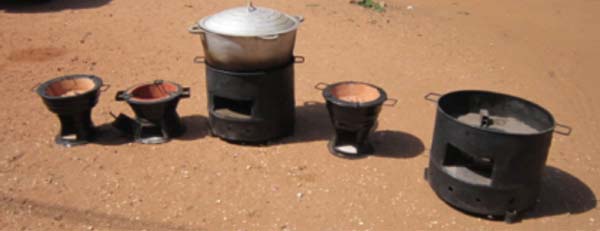
Hello and a warm welcome to yet another edition of The Environment, your weekly column on environmental issues.
In today’s edition, we look at the various efforts made by government institutions to rescue coastal communities from possible disaster, that could directly or indirectly affect the attainment of food security as a result of climate change.
The Gambia has set out to prepare its coastal communities against looming climate change risks, with the launch of a US$9.9 million project themed: “Enhancing resilience of vulnerable coastal areas and communities to climate change.”
The four-year project is said to be the biggest grant awarded under the Least Developed Countries Fund. It was devised to enhance resilience of vulnerable coastal areas and communities to climate change, and to reduce the country’s vulnerability to sea-level rise.
In 2007, the UN-Intergovernmental Panel on Climate Change identified Africa as one of the most vulnerable continents with regards to climate effects, and The Gambia was further categorised among one of the most vulnerable on the continent.
“Gambia is highly vulnerable to any rise in sea level because of its low-lying coastal areas, some of which are presently below sea level,” said Momodou J. Suwareh, director of the Intersectoral Network at the National Environment Agency.
“Some of the ominous predictions include coastal flooding and erosion, loss of natural living resources, population movements and attendant political tensions.”
Meanwhile, this coastal project is jointly funded by the UN-Global Environment Facility (GEF), the Least Developed Countries Fund (LCDF), UNDP and Gambia government. It was approved by the GEF Council in October 2013.
The UNDP is GEF’s implementing agency and the NEA is the implementing partner for the project.
“This project is just four years,” said Izumi MorotaAlakija, the UNDP deputy resident representative.
Referring to the project, she added: “It is not going to solve all our problems, but after four years, we would like to see the objectives delivered. And we can use this project as a stepping stone to get more projects to mitigate climate change.”
Use Energy Efficiently, Save the Environment
Chris Dean, power systems engineer of the Renewable Energy Association of The Gambia (REAGAM) has urged people in The Gambia to embrace improved-cooking stoves.
He said stoves, especially those produced by his organisation, have environmental and socio-economic benefits.
“Stoves for cooking or heating are environmentally-friendly and cost effective,” he added.
REAGAM is a non-profit association of companies, organisations and individuals of the country’s renewable energy sector, seeking to promote cost-effective and efficient use of renewable energy.
The association, under a grant provided by the GEF small grants programme, has been implementing a project called “Use Energy Efficiently; Save the Environment”.
He said the concept and application of renewable energy technologies are not new in The Gambia.
However, the sector still remains largely untapped due to the inability of the main players and stakeholders to effectively harness the full potentials of the resources available.
According to him, it was against this backdrop that his association was born.
He explained that REAGAM seeks to contribute to the national energy policy.
“As a lobby group on renewable energy issues, we facilitate inter-organisation cooperation, educate people on renewable energy technology, provide a platform for discussion on renewable energy technologies, advocate for renewable energy research and development, and foster professional relationships with regional and international organisations,” he added.
Mr. Dean went further to provide electricity saving tips that if followed could promote energy efficiency, whilst reducing considerably the amount of electricity consumption.
He explained further that household appliances such as refrigerators, deep freezers, fans, DVD/video, TV etc, have become an integral part of modern life and the power rating of these equipment is not high, but misuse could lead to energy waste.
Computers, printers and typewriters used in offices also have low energy rating, and if left on when not in use for a long time could lead to high energy consumption. “Therefore, switch them off when you are no using them,” he advised.
“Energy efficiency lighting replaces incandescent bulbs with compact florescent lamps, use task lighting instead of room lighting and turn off lights when day light is enough,” he added.
Mr Dean said applying these tips reduces electricity consumption, helps save money, less incidence of power cuts, reduction in the electricity generated and use of fuel, improve voltage level for customers and saves the environment.
REAGAM membership consists of private sector enterprises involved in different sectors of the industry, such as solar power, water wells, bio-energy, wind and agriculture.
Partner institutions which have played a functional and supportive role include the ministry of Energy through the Gambia Renewable Energy Centre (GREC), department of Water Resources through the EU-funded Regional Solar Programme Phase II and Rural Water Supply Sector Support Projects.
For your comments, suggestions and contributions, please send email to: asallah6@yahoo.com or call (00220) 6361340.



